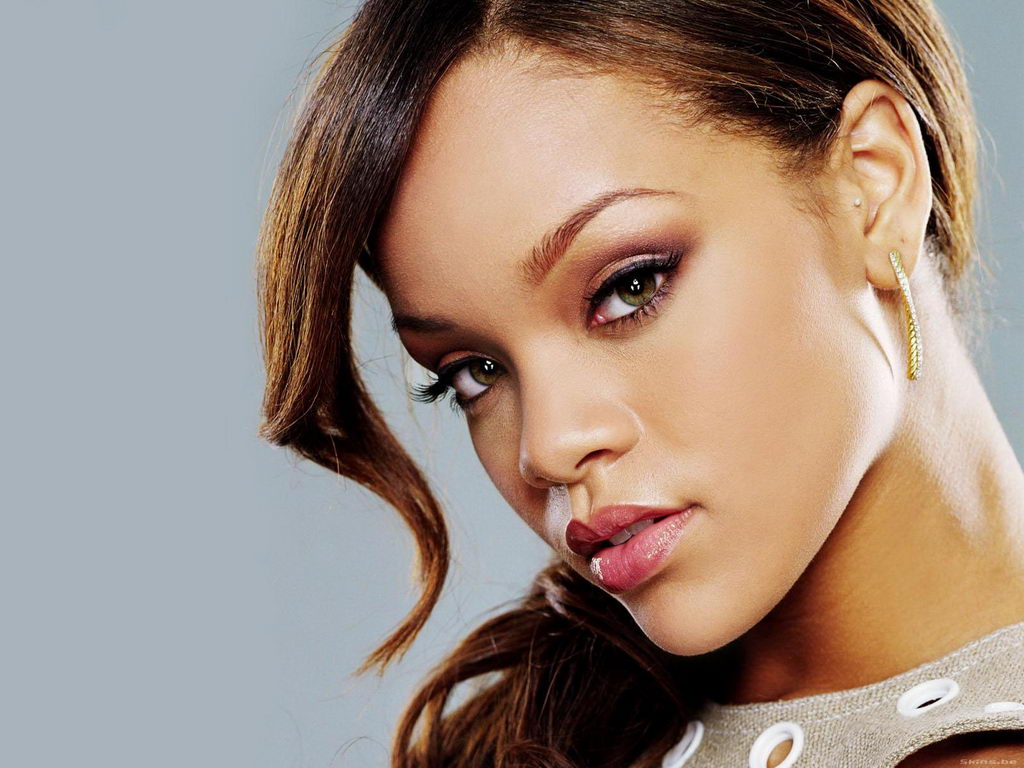
Rihanna established herself big-time in summer 2005 with her debut smash hit, "Pon de Replay," and continued to demonstrate her smash hit potential in subsequent years (e.g., "S.O.S.," 2006; "Umbrella," 2007). By the time of her third album, Good Girl Gone Bad (2007), she was a full-fledged international pop star with a regular presence atop the charts, from Germany to Japan. Born Robyn Rihanna Fenty on February 20, 1988, in Saint Michael, Barbados, she always exhibited a special quality, winning beauty and talent contests as a schoolchild. But because she lived on the fairly remote island of Barbados in the West Indies, she never foresaw the sort of stardom that would later befall her.
That stardom came courtesy of a fateful meeting with a man named Evan Rogers. The New Yorker was vacationing in Barbados with his wife, a native of the island, when someone turned him on to Rihanna. Since Rogers had spent years producing pop artists -- including superstars like NSYNC, Christina Aguilera, Jessica Simpson, Kelly Clarkson, Laura Pausini, and Rod Stewart -- he offered her the opportunity to record some music after he recognized her talent and potential. Along with Rogers' production partner, Carl Sturken (the other half of Syndicated Rhythm Productions), Rihanna recorded some demos that sparked the interest of the Carter Administration -- that is, newly appointed Def Jam president Shawn "Jay-Z" Carter. This led to an audition and, in turn, an on-the-spot offer to sign with Def Jam, which Rihanna indeed inked on the spot.
Come summer 2005, Def Jam rolled out "Pon de Replay," the lead single of Music of the Sun, which was produced almost entirely by Rogers and Sturken and which synthesized Caribbean rhythms and beats with urban-pop songwriting. "Pon de Replay" caught fire almost immediately, climbing all the way to number two on The Billboard Hot 100 and contesting the half-summer reign of Mariah Carey's "We Belong Together" atop the chart, and this was before Music of the Sun even had been released. The album spawned one other hit, "If It's Lovin' That You Want," which broke the Top 40. Rihanna's follow-up album, A Girl Like Me, was a greater success, spawning three big hits: a chart-topper ("S.O.S.") and two Top Tens ("Unfaithful," "Break It Off").
Rihanna's third album, Good Girl Gone Bad (2007), continued her success and, more notably, signaled a change of direction. Whereas her past two albums had been been imbalanced -- often weighed down by faceless balladry and canned Caribbean-isms -- Good Girl Gone Bad was a first-rate dance-pop album. Moreover, it was surprisingly solid, stacked with potential singles and easily enjoyable from beginning to end. Collaborators included Jay-Z, Ne-Yo, Timbaland, and StarGate. The lead single, "Umbrella," shot to number one and, for the third year in a row, was a potential "song of the summer." By this point it was clear that Rihanna had become one of the biggest singles artists of the mid-2000s. Jason Birchmeier, All Music Guide


















